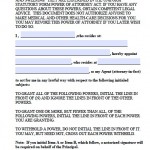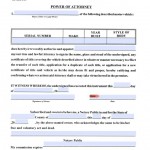A power of attorney gives someone the legal authority to handle your personal affairs, typically medical treatment decisions or financial decisions. The person that grants authority is called the principal, and the person who acts for the principal is called the agent. People most often nominate a close relative or spouse to be their agent, but a close friend or an attorney can also be a good choice. You must select the agent carefully because the agent might have a great deal of power over your property or welfare.
Power of attorney documents are flexible. They can authorize your agent to perform any financial transaction for you, for example, or the document can authorize your agent to do one task, such as collecting your benefits and depositing them in your accounts. You can also specify that the document will remain in effect only for a particular period of time, or that it should only come into effect if you lose the ability to oversee your personal affairs.




